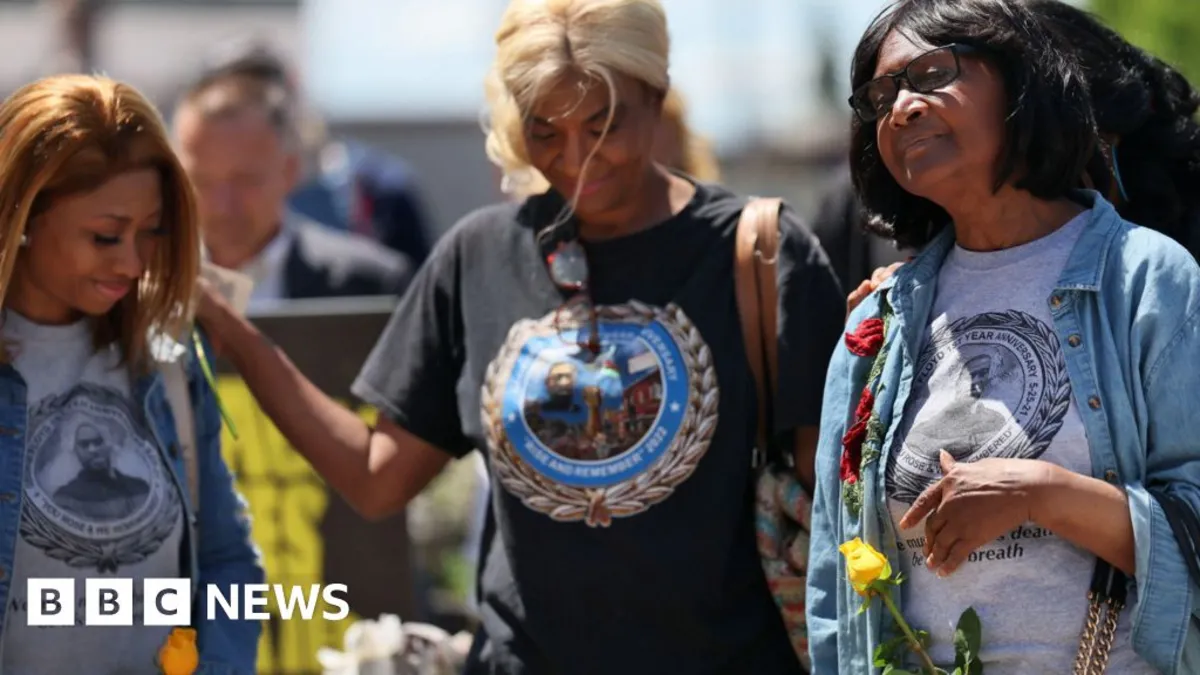
On the fifth anniversary of George Floyd's death, Americans nationwide are coming together to honor his memory. Special gatherings are taking place in both his hometown of Houston and Minneapolis, where he tragically lost his life. Floyd's murder by former police officer Derek Chauvin ignited widespread protests across the country, highlighting issues of racism and police brutality.
On Sunday, Floyd's family and supporters gathered in Houston, close to his gravesite, for an event led by the Rev. Al Sharpton. Meanwhile, Minneapolis hosted various commemorative events, including a morning church service, a candlelight vigil, and an evening gospel concert. These activities were part of the annual Rise and Remember Festival, celebrated in George Floyd Square, the site of his murder, which has since been dedicated to his memory.
Angela Harrelson, Floyd’s aunt and co-chair of the Rise and Remember nonprofit, emphasized the importance of continuing the fight against systemic racism. “Now is the time for the people to rise up and continue the good work we started,” she stated, reinforcing the festival's mission.
George Floyd was murdered in 2020 during a police arrest in Minneapolis, when Derek Chauvin, a white police officer, knelt on his neck for over nine minutes. The shocking act, captured on a bystander's cell phone, led to global outrage and massive demonstrations against racial injustice and excessive police force. Chauvin is currently serving a 22-year prison sentence after being convicted of murdering the 46-year-old, while other officers involved were also held accountable for failing to intervene during the incident.
In a recent post on X, Rev. Sharpton reflected on how Floyd's death catalyzed a long-overdue reckoning with systemic racism and inspired millions to protest. “The conviction of the officer responsible was a rare step toward justice, but our work is far from over,” he remarked, stressing the ongoing need for reform.
Following Floyd's death, the Justice Department, under former President Joe Biden, initiated civil investigations into multiple local law enforcement agencies, including those in Minneapolis, Louisville, and Phoenix. Findings indicated systemic police misconduct, leading to agreements aimed at enhancing police accountability and improving data collection on police activities. However, the Trump administration recently critiqued these findings, claiming they were based on flawed methodologies.
Minneapolis Mayor Jacob Frey asserted that the city would adhere to the 169-page consent decree established this year, despite the Trump administration's pushback. Since returning to office, Trump has also targeted Diversity, Equity, and Inclusion (DEI) initiatives, which were designed to combat discrimination. He argued that these measures could be discriminatory themselves and stated his intent to eliminate such policies from the federal government.
In a speech at West Point, Trump claimed that ending DEI initiatives in the military would refocus efforts on the military’s core mission, while Washington D.C. Mayor Muriel Bowser removed the Black Lives Matter Plaza from near the White House, further signaling a shift in the political landscape surrounding racial justice.
As the nation remembers George Floyd, recent surveys indicate that many Americans feel progress toward racial equality has stagnated. A May survey from the Pew Research Center revealed that 72% of respondents believe there have been no meaningful changes in the lives of Black Americans since Floyd's death. Additionally, support for the Black Lives Matter movement has declined by 15% since June 2020, reflecting a growing concern about the effectiveness of ongoing activism.
As communities across the country hold vigils and events in memory of George Floyd, the call for justice and equality continues to resonate, reminding us of the work that still lies ahead in the pursuit of a more just society.